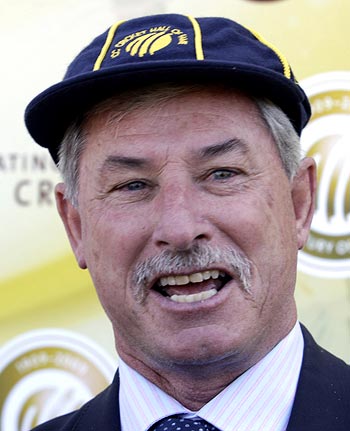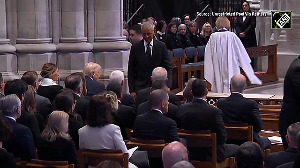 Legendary New Zealand all-rounder Sir Richard Hadlee has hit out at the International Cricket Council (ICC) for "betraying the game of cricket" by protecting the interest of India, who are the largest generator of revenue, ahead of the sport itself.
Legendary New Zealand all-rounder Sir Richard Hadlee has hit out at the International Cricket Council (ICC) for "betraying the game of cricket" by protecting the interest of India, who are the largest generator of revenue, ahead of the sport itself.
Hadlee was particularly worried for the future of Test cricket, saying the growth of Twenty20 and the huge financial lures for players from the cash-rich Indian Premier League means the ICC needs to exercise its authority.
"We are in grave danger of having the decision makers betraying the game of cricket," said Hadlee during a nationwide tour to promote his latest book 'Changing Pace' which summarises his last nine years of cricket research, thought and experience.
"We all know now that Asia, and more particularly India, have a more powerful say (at ICC level) because they generate that much more a higher percentage of revenue, which other countries benefit from.
"So, who protects the game? The decision makers on the ICC have to try and control it so that all the games can co-exist and live together," he was quoted as saying by the Herald Sun.
The 58-year-old ex-Kiwi cricketer felt excessive amount Twenty20 poses danger of overkill and compromises the viewership of other formats and in that scenario it is imperative that the ICC controlled the game.
"Everything evolves and things keep changing, but this is a revolution within the game of cricket. It's new, marketable, successful and brings in huge money. The danger is overkill, that you have too much of it, and it swamps other forms of the game and compromises them," Hadlee said.
"If one format of the game like Twenty20 consumes the game as much as it is doing now -- and potentially in the future -- it is destroying the game of cricket as a total concept."
Hadlee said if the IPL expands from 56 games to more than 90 and its playing window increases from six to eight weeks, it would be counter productive to the international game.
"If you have a head body like the ICC -- as you do with the International Olympic Committee or FIFA -- they must have the power and the rights to control and manage the game.
"That's important for the game's existence, its survival and its future. It can't be undermined by a country, or other countries. Once country interests are being protected it becomes a destructive element and you have anarchy. There is potential for real chaos," he warned.







 © 2025
© 2025